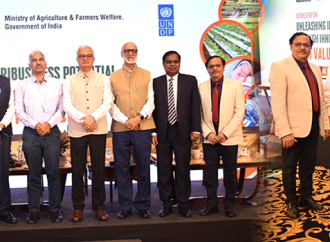Introduction Food security refers to the availability of food and one’s access to it. A household is considered food-secure when its occupants do not live in hunger or fear of starvation. Likewise, world food security is assured when its population has adequate and nutritious food in order to live a happy life. Two commonly used
Introduction
Food security refers to the availability of food and one’s access to it. A household is considered food-secure when its occupants do not live in hunger or fear of starvation. Likewise, world food security is assured when its population has adequate and nutritious food in order to live a happy life.
Two commonly used definitions of food security come from the UN’s Food and Agriculture Organization (FAO) and the United States Department of Agriculture (USDA)
Food security exists when all people, at all times, have physical, social and economic access to sufficient, safe and nutritious food to meet their dietary needs and food preferences for an active and healthy life. (FAO)
Food security for a household means access by all members at all times to enough food for an active, healthy life. Food security includes at a minimum
1) the ready availability of nutritionally adequate and safe food, and
2) an assured ability to acquire acceptable foods in socially accepted ways (that is, without resorting to emergency food supplies, scavenging, stealing, or other coping strategies. (USDA)
FAO recently launched the United Against Hunger Campaign following the sharp increase from approximately 850 million hungry people in 2007 to over billion by the end of 2009. The campaign is collecting one million signatures worldwide to submit to the leaders of all countries, requiring them to strongly commit to tackle the hunger problem
![]()















